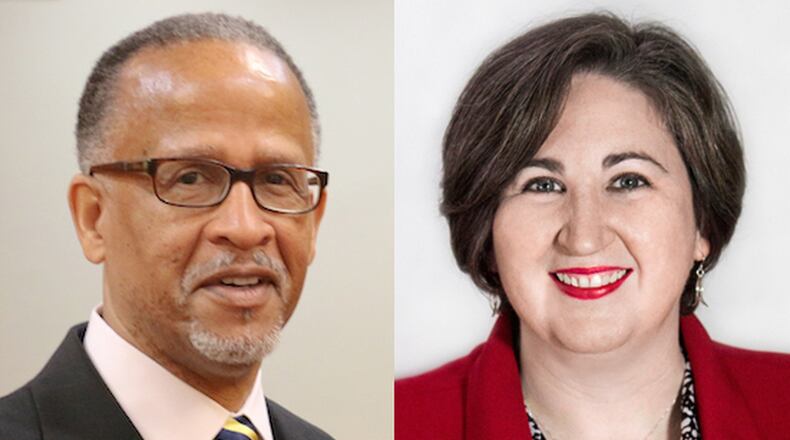Candidates for DeKalb tax commissioner are focusing on customer service as they campaign for the county's highest-paying job ahead of Tuesday's runoff election.
Tax Commissioner Irvin Johnson and contract attorney Susannah Scott both say they're most qualified to oversee the collection of nearly $1 billion in annual property and motor vehicle taxes.
Johnson, who became tax commissioner when Claudia Lawson retired at the end of last year, said he has made the tax office more user-friendly by offering tax bill seminars and installing self-service kiosks for vehicle registration renewal at two Kroger stores.
Scott, the daughter of former DeKalb Tax Commissioner Tom Scott and former DeKalb Commissioner Jacqueline Scott, said she wants to extend the tax office’s hours beyond 4:30 p.m. on weekdays so more residents can get help with their taxes when they need it.
The winner of the race will earn about $242,000 for the largely administrative job. The tax commissioner doesn’t set tax rates or assess property values.
Johnson touts his 15 years of experience working in the Tax Commissioner's Office and says his free seminars on understanding your tax bill are an example of his efforts.
“As I travel around the county, I see that a lot of people have some confusion about what their tax bill means, so we’re going to do some outreach,” Johnson said at a debate hosted by Pride Rings In Stone Mountain (PRISM).
Scott praised Johnson for starting the seminars, but said she also wants to find ways to open the tax office in evenings and Saturdays.
“The main thing I want to do is start working on accessibility of the office and making sure that it’s open when working people need it to be open,” Scott said at the debate. “It doesn’t necessarily mean overtime hours. There are creative solutions.”
She said employees’ schedules could be adjusted to keep the office open without costing the public more money.
The race will appear on Democratic Party primary voters' ballots twice: once for a special election to fill the remainder of the current four-year term, and again for the next term that starts Jan. 1. Republican Party primary voters will vote in only the special election because there's no Republican candidate in the race.
Whoever wins the Democratic Party runoff will be unopposed in the November general election.
Johnson, who was Lawson's chief deputy, has sued over the election. His lawsuit argues that he should be labeled the incumbent on ballots and that the special election shouldn't have been held. He contends a 1982 state law governing tax commissioner succession trumps a DeKalb-specific law passed in 2008. A judge hasn't ruled in the case.
Johnson received 38 percent of the vote in the primary special election compared to Scott’s 36 percent. About 25 percent of voters supported the third candidate in the race, former DeKalb Commissioner Stan Watson.
About the Author
Keep Reading
The Latest
Featured





